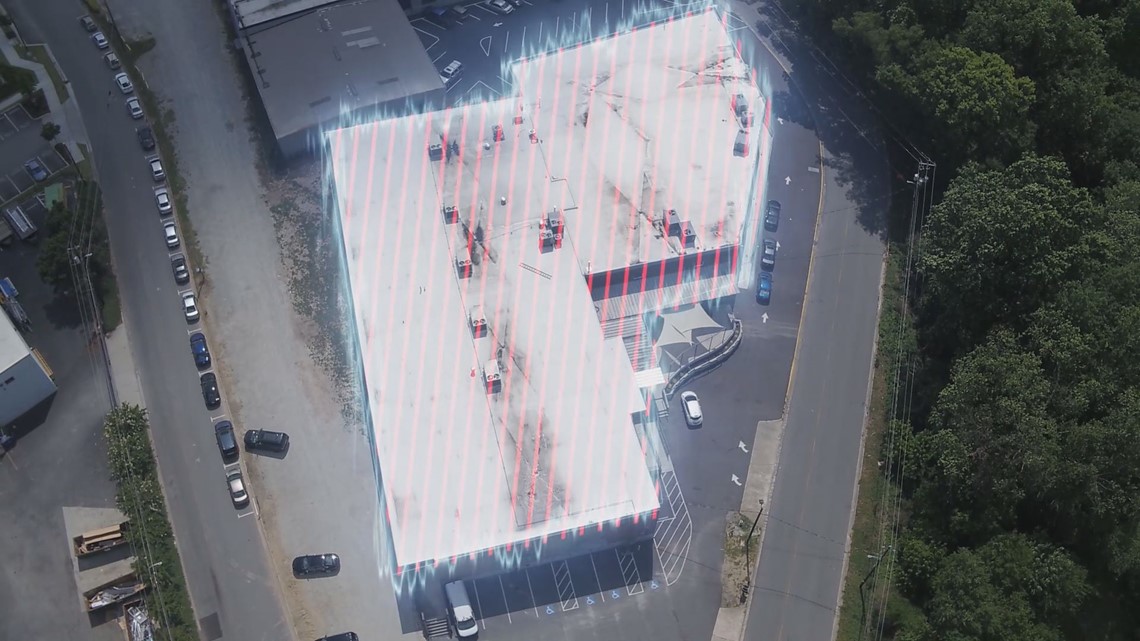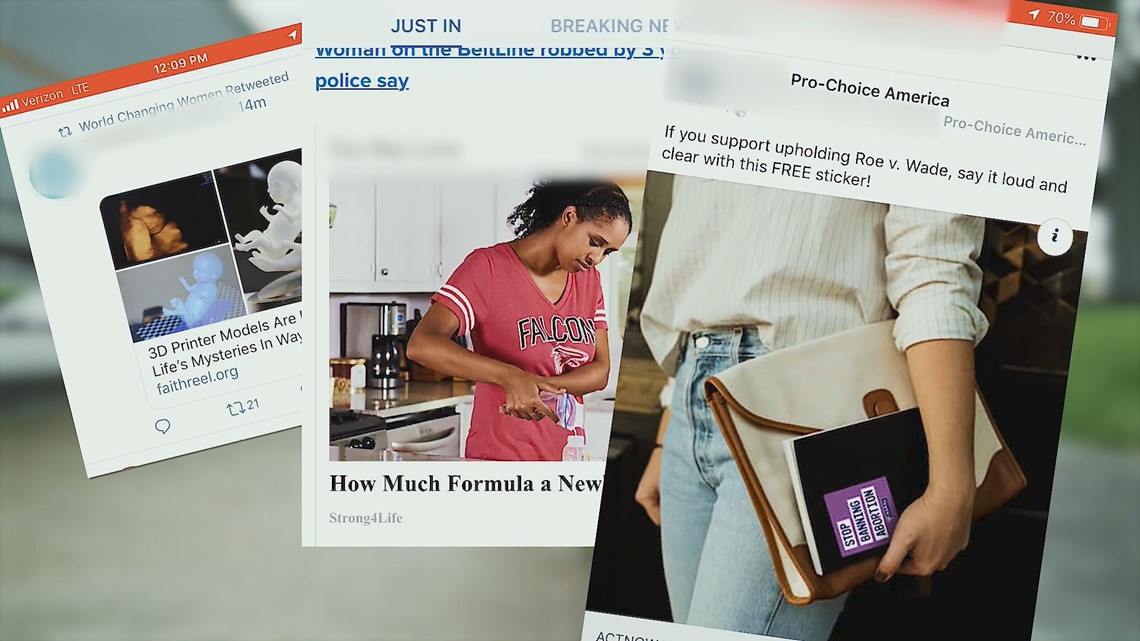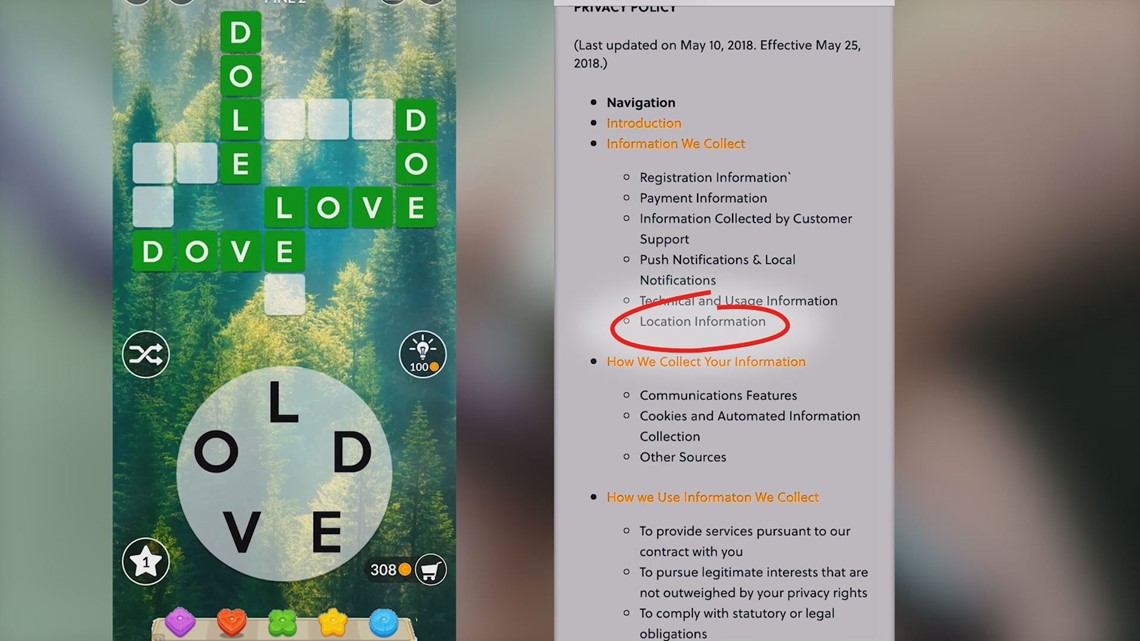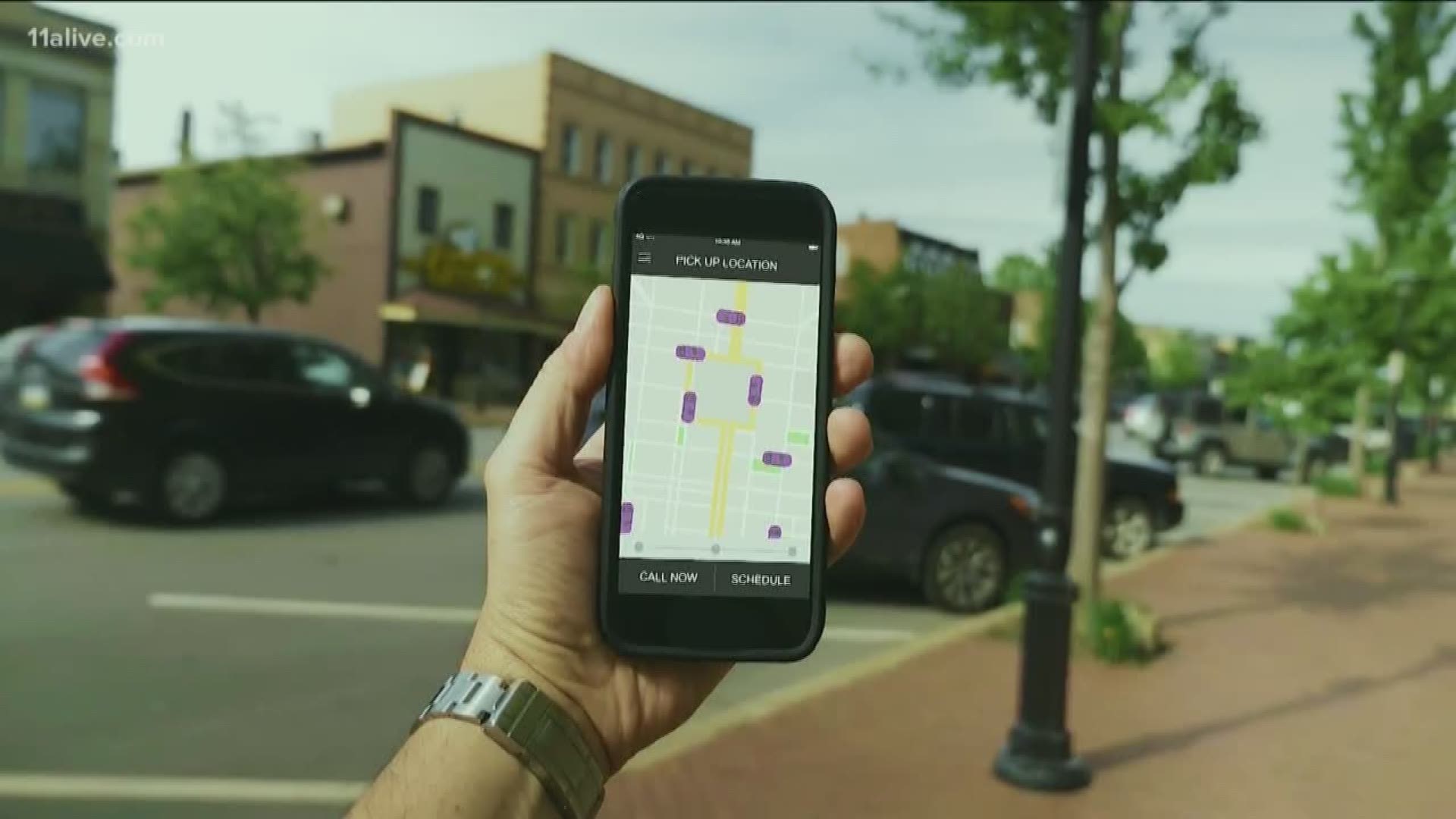If you’ve ever had the feeling you’re being followed, it’s true. Almost all of us are - just maybe not in the way we think.
Some marketers are using the GPS on your smartphone to physically track and send ads based on the places you go to. It’s called geofencing. For businesses, it’s a targeted way to send information a person might actually be interested in receiving.
“It is better to receive ads from folks who say, 'You know what, based on your location, this ad that I want to serve you is relevant',” explains Justin Croxton, the managing partner of Propellant.
His company uses this technology to help clients better target their advertising dollars. Croxton said he can geofence the contours of a specific building. When someone walks through that invisible wall, information from their mobile device is captured and used to serve ads for up to 30 days.


For example, if you’re shopping for a car and you visit one dealer that happens to be geofenced by a competitor, you might start seeing ads pop up in your social media feeds alerting you to the special deals they have to offer.
Because we’re talking about air space, companies don’t need permission to do it and there’s no way to visually know you’ve entered a geofenced area.
Car dealerships are one thing. Privacy experts say geofencing can, and has, gone much further by tracking locations they believe should remain private. Attorney Peter Hannah points to medical specialists or emergency rooms.
A company can geofence the area and then send ads for specific types of cancer treatment or drugs. A personal injury lawyer might hope to gain a few clients from the ER or companies could target clients who may need hospice or might be thinking about the importance of life insurance.
The Reveal team drove around metro Atlanta visiting courthouses, emergency rooms and car dealerships to see if any targeted ads would pop up on their devices.
They noticed a few ads related to health while in the two emergency rooms they visited and received some competing car ads while at a dealership. One dealership, AcuraCarland in Duluth confirmed it does use geofencing as part of its marketing strategy.
The most active spot however, seemed to be outside a Planned Parenthood.
Within a few minutes, they received sponsored articles in their social feeds on caring for newborns, how to get a 3D model of an unborn baby and an ad for a pro-choice group.
“That sort of advertising does raise a number of ethical issues, civil liberties issues,” said Hannah.


The Reveal Investigator Rebecca Lindstrom reached out to these companies and groups as well. Only one responded back, the pro-choice group. It denied using geofencing.
In 2017, the attorney general in Massachusetts believed geofencing around reproductive health care facilities was an invasion of privacy. Maura Healey reached a settlement with the advertiser targeting those and methadone clinics for a client. Healey essentially barred the practice from those locations saying, it had “the potential to digitally harass people and interfere with health privacy.”
Lawmakers in Illinois also tried to curb where geofencing could be used, but the governor vetoed the bill saying protections already existed to punish inappropriate activity.
Croxton said only a small slice of companies and groups that could benefit from geofencing use it. So, the market is going to grow - especially in politics as we get closer to the 2020 elections.
“Let’s say they’re having a rally and you want to serve negative ads to all the people at that rally,” said Croxton.
We know it’s already been used in Michigan. News reports say Democrats geofenced several precincts in 2016 to send ads to voters as they waited to cast their ballot. Republicans admit geofencing megachurches to send targeted ads to evangelical voters.
In Georgia, the GOP said several candidates have used the technology, too, but declined to comment on who or how.
Hannah knows advertising is all around us but argues there’s a difference between seeing an ad for a personal injury lawyer on a billboard outside the hospital and on your phone while sitting in it.
“We’ve developed an intimate relationship with our phones. They have all our photos, emails … our calendars," Hannah said.


You can turn off location services on your apps, but then some won’t work. Other apps don’t give you a choice. There are games that don’t need your location to work and don’t show up in your location settings, but if you read the fine print in the app, it will tell you it’s still collecting location data.
Croxton listed just a few of the 500 or so applications marketers have access to.
“You think about Angry Birds, Words with Friends, the Weather Channel, Huffington Post,” he said.
His advice? Be careful where you go.
The Reveal is an investigative show exposing inequality, injustice, and ineptitude created by people in power throughout Georgia and across the country. It airs Sunday nights at 6 on 11Alive.

